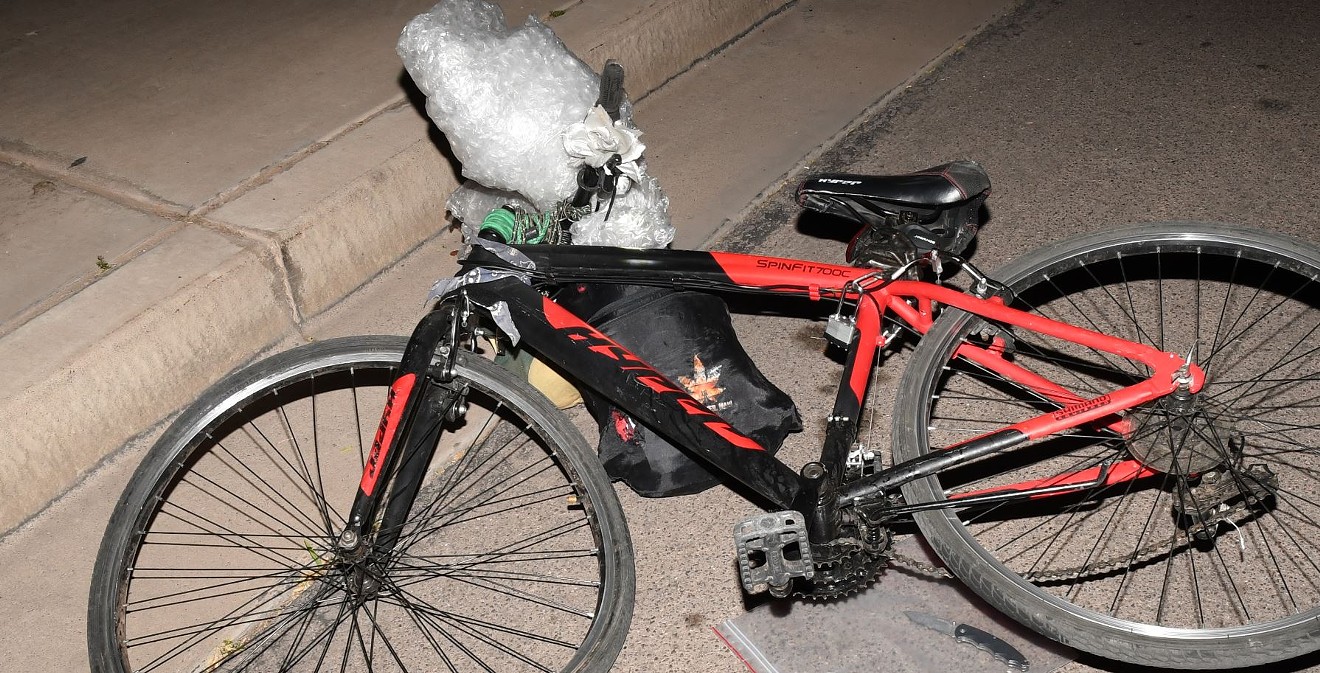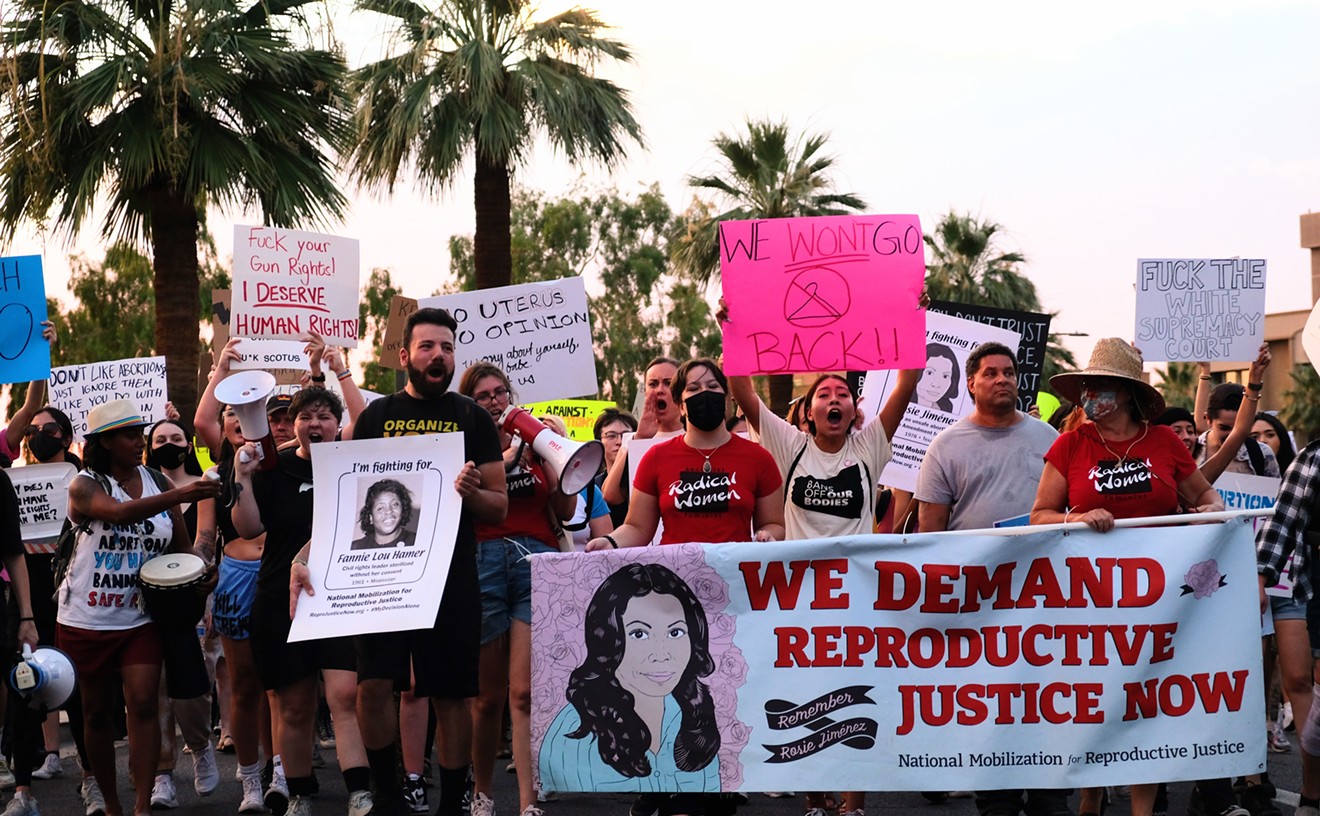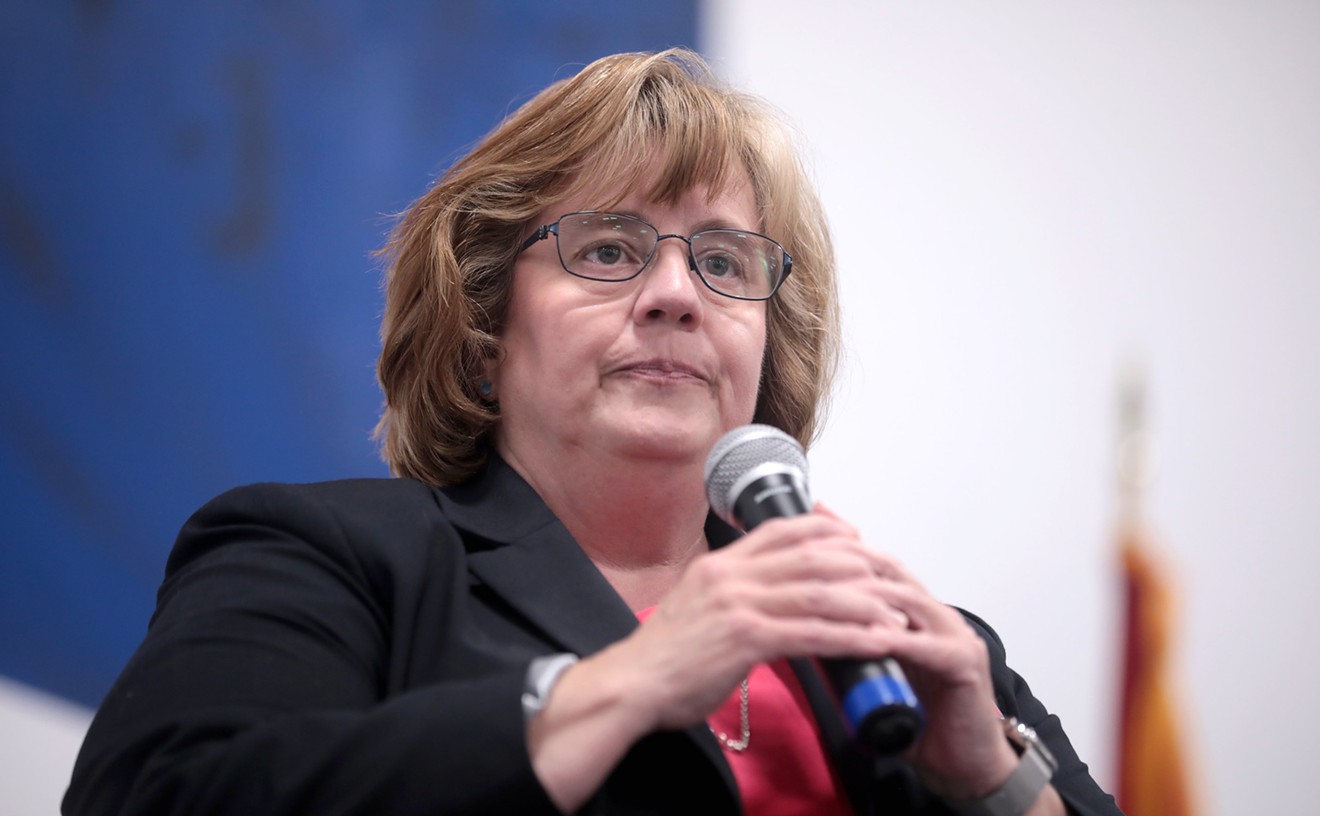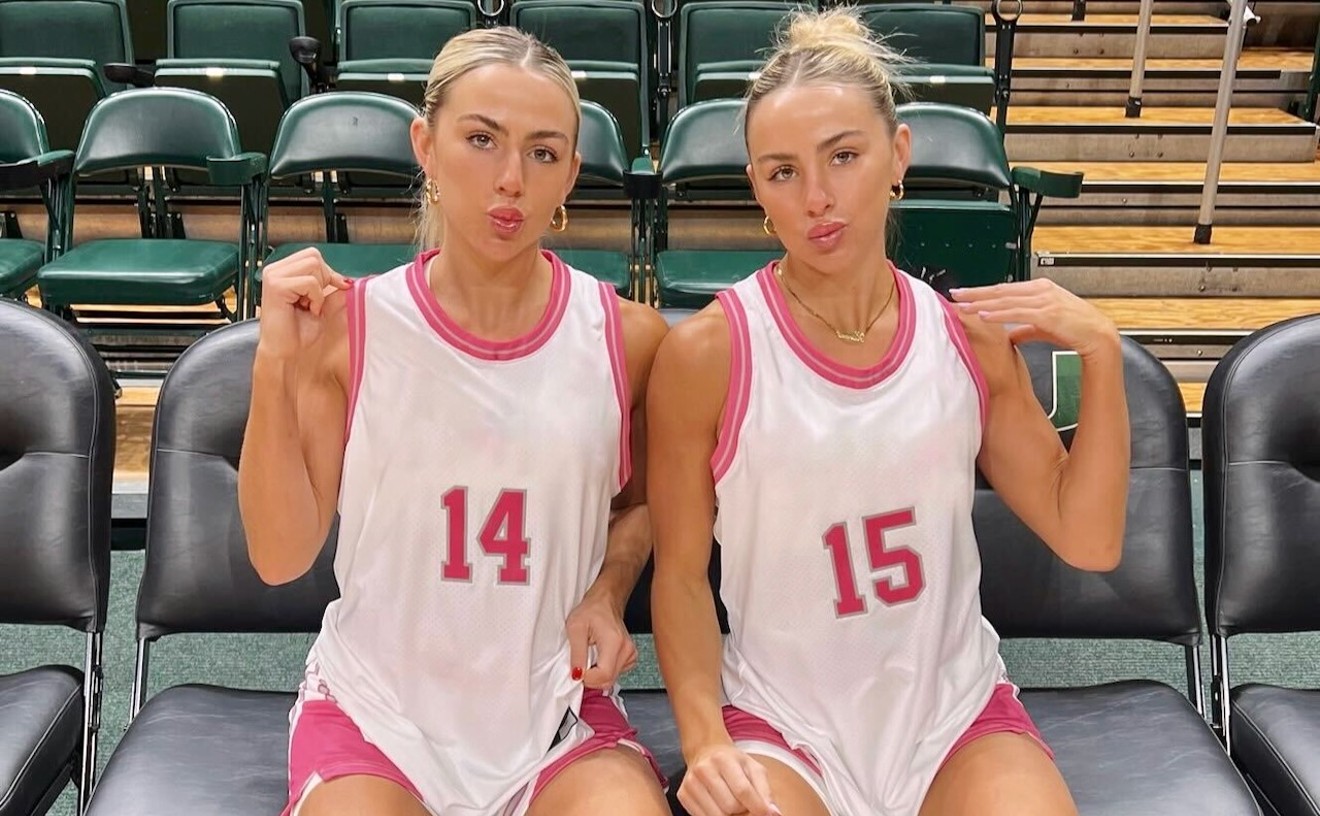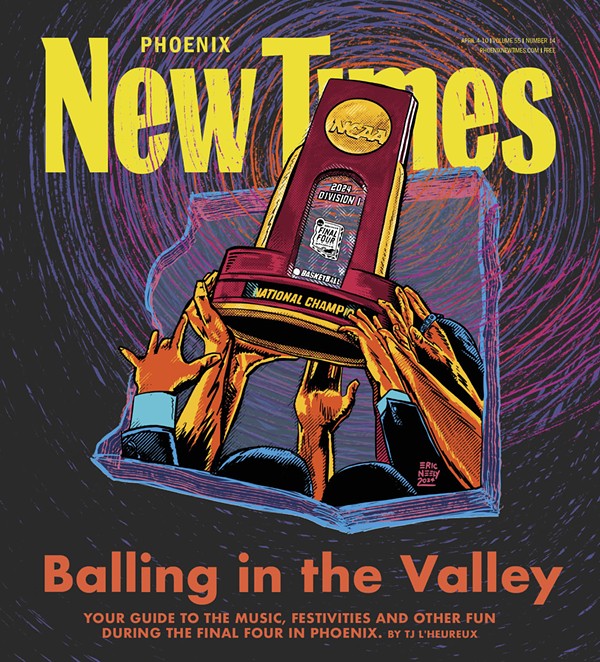Did an artificially intelligent machine, a faceless corporation, or a local woman kill pedestrian Elaine Herzberg on the streets of Tempe in 2018?
Prosecutors say that Rafaela Vasquez, a Maricopa County woman in her late 40s, is responsible. She's on trial for negligent homicide, accused of watching television on her cell phone instead of looking at the road while working for Uber as an autonomous vehicle backup driver. She pleaded not guilty after being indicted in September.
Her defense team, naturally, is preparing to steer the blame away from Vasquez. They just got a trial delayed for the second time in a case that still draws the attention of the multi-billion-dollar self-driving car industry and its observers.
The March 18, 2018, crash on the northbound Mill Avenue bridge forced Uber out of Arizona, caused other self-driving companies to re-examine their safety procedures, and generally reduced public faith in autonomous vehicle technology. An Arizona prosecutor decided in March 2019 that Uber itself hadn't committed a crime, but some observers believed the company got off easy and that the backup driver is being made a scapegoat.
Vasquez's trial date is now set for August 10, moved back from May 11, and before that, from February 11. Given the case's complexity, it'll likely get pushed back again. Such delays are routine in criminal cases that aren't cut and dried. But the recent motions requesting more time in the case by Vasquez's private lawyers, Marci Kratter and Albert Morrison, give a glimpse of the probable defense.
Discovery in the case, which is the process of pulling together all the evidence for each side, "is voluminous and highly technical in nature," the attorneys wrote in an April motion. "To date, counsel has received an enormous amount [of] discovery, but they believe some materials are still outstanding."
Back in January, when the first trial delay was granted and the case officially designated "complex," the attorneys specified that the "voluminous" discovery materials would pertain to the "technology related to automated driving."
Kratter and Morrison also intend to file a pleading to remand the case back to the grand jury for reconsideration; the deadline to file a motion for that pleading is June 1.
The defense attorneys spoke briefly about the case on Tuesday, saying, "We don't believe our client should have been indicted."
Vasquez has been laying low since the incident and hasn't given any media interviews. Asked about their client's state of mind with the threat of prosecution — now real — hanging over her head for three years, Morrison said in a phone call with Kratter, "We believe that she's been devastated by the loss of life."
(One filing by the attorneys gently addresses Vasquez's transition as a transgender woman: While the charge was filed in Vasquez's legal, "dead," name of Rafael, the attorneys noted in subsequent court paperwork that her name is Rafaela.)
The Maricopa County Attorney's Office and Uber didn't respond to requests for comment in the case on Tuesday.
An investigation showed that an observant driver likely would have seen Herzberg walking her bicycle across the street before the nighttime crash because of the robust lighting on the bridge. Interior video showed Vasquez repeatedly looking below the dashboard in the seconds before the crash. Although she insisted in a post-crash interview that she hadn't been using her personal phone, records obtained by Tempe police proved the phone had been streaming the TV show The Voice just before the crash.
Yet critics of Uber claim that the company's policies had failed Vasquez and put the public in danger. The final report on the crash by the National Transportation Safety Board in November 2019 bluntly stated that Vasquez probably would have had enough time to avoid the crash had she been "attentive." But the NTSB also blasted Uber's "inadequate safety cultures" and found that the state of Arizona's lax oversight had resulted in safety "shortcomings."
Uber had disabled the Volvo's manufacturer-installed automatic braking system because it was incompatible with the self-driving system. The modified Volvo XC90 was in full automation mode before it struck Herzog, but its radar and lidar systems misidentified the pedestrian initially. When the car's brain finally realized an emergency stop was needed, it didn't alert Vasquez, leaving her to figure it out on her own. The car plowed into Herzberg at about 40 mph without braking.
The recent filings by Kratter and Morrison indicate they plan to delve deeply into these technical issues and minimize the responsibility of Vasquez before a possible jury trial.
(Correction: Vasquez's phone had been streaming The Voice, not The View.)
[
{
"name": "Air - MediumRectangle - Inline Content - Mobile Display Size",
"component": "18478561",
"insertPoint": "2",
"requiredCountToDisplay": "2"
},{
"name": "Editor Picks",
"component": "16759093",
"insertPoint": "4",
"requiredCountToDisplay": "1"
},{
"name": "Inline Links",
"component": "17980324",
"insertPoint": "8th",
"startingPoint": 8,
"requiredCountToDisplay": "7",
"maxInsertions": 25
},{
"name": "Air - MediumRectangle - Combo - Inline Content",
"component": "16759092",
"insertPoint": "8th",
"startingPoint": 8,
"requiredCountToDisplay": "7",
"maxInsertions": 25
},{
"name": "Inline Links",
"component": "17980324",
"insertPoint": "8th",
"startingPoint": 12,
"requiredCountToDisplay": "11",
"maxInsertions": 24
},{
"name": "Air - Leaderboard Tower - Combo - Inline Content",
"component": "16759094",
"insertPoint": "8th",
"startingPoint": 12,
"requiredCountToDisplay": "11",
"maxInsertions": 24
}
]

